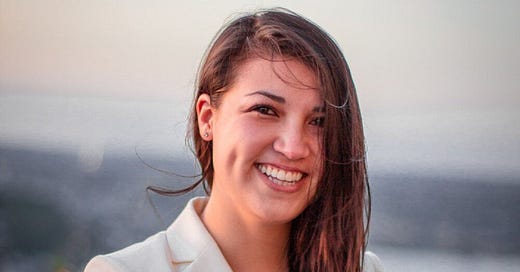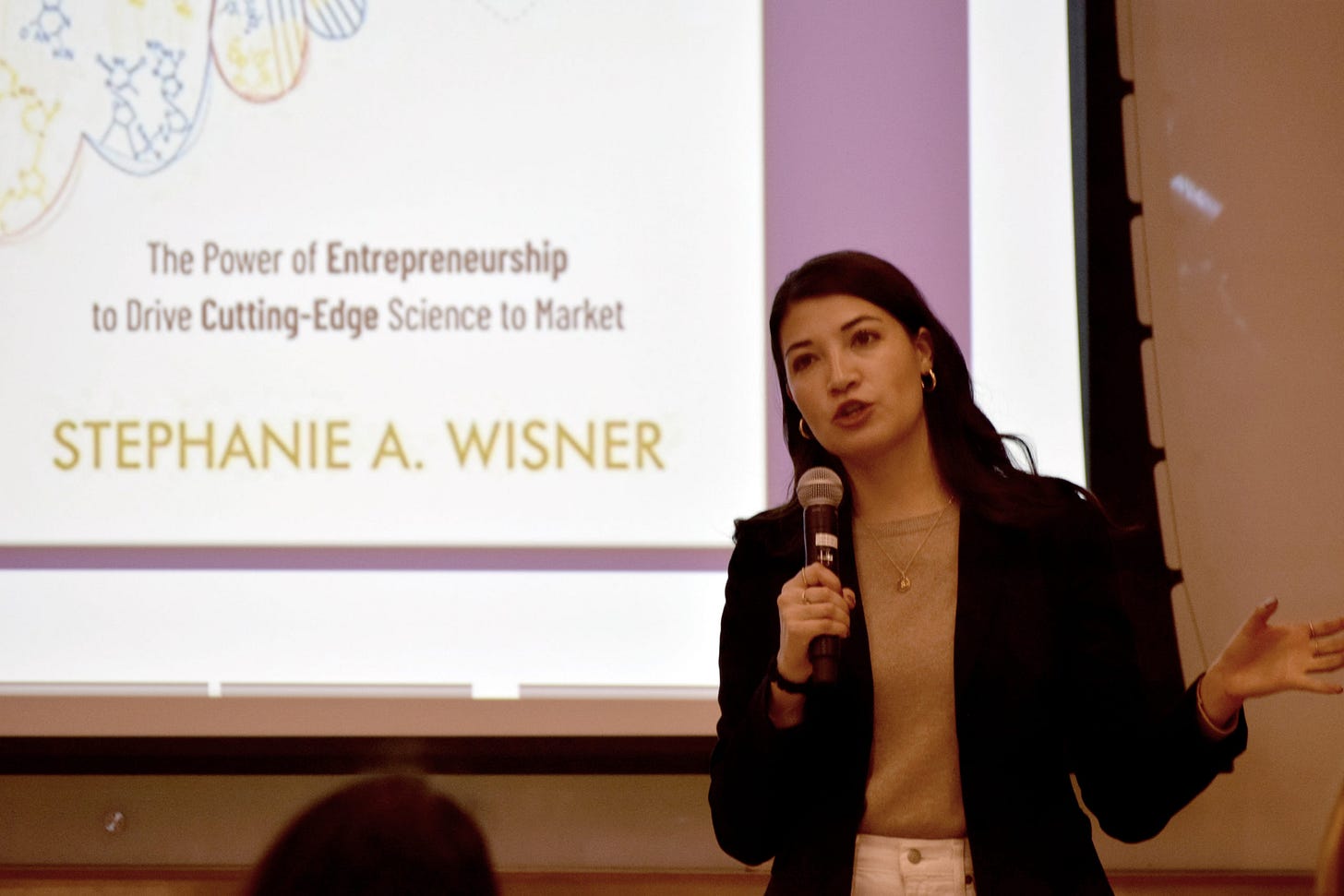Q&A Stephanie Wisner: Biotech Entrepreneur
Stephanie Wisner is a co-founder of biotech startup Centivax, who recently published her book, "Building Backwards to Biotech." Interview by Cecile Horst & Eve Slemp
Stephanie attended my own high school and reached great success. From being listed on Forbes 30 Under 30 Healthcare List, starting her company, to writing her own novel, Stephanie has truly been an inspiration to me. I admire her success and motivation to work hard and help others, especially with her “women helping women” mentality. Stephanie has a wonderfully niche concentration in vaccine health, but impressively was able to combine her interests of English and business with her fascination of science.
What inspired the union between science and entrepreneurship?
I always thought that I would go to medical school and get a PHD. As I started to do medical shadowing, I started to notice this problem that the patients we were seeing consistently ran out of treatment options, whether it was terminal cancer or a neurodegenerative disease. At some point, the doctors ran out of options for them, and that was because there weren’t medicines that had been created for those diseases. I thought this was terrible. I was doing scientific research in a lab on pancreatic cancer, a very deadly disease. We were doing all this groundbreaking scientific research on pancreatic cancer, but were doing it to write scientific publications. That's how research works in academia. We weren’t doing it to create new medicines that could actually benefit people. And that's not the fault of the academic lab or the doctor; it's just the system. I noticed this gap where we have cool new science and people that need this science but no way to bridge those things. So I ended up doing some research and one day I got a random email from my alma mater that they were doing an entrepreneurship class for scientists in upstate New York. I never was really into it, it didn’t suit my personality, I never even took any classes on it in high school, but when I saw the email, I thought, “why not?” So, I dropped everything and went out to New York and did the seminar.
What was the pivot from med school to business school like?
It did not feel natural, I was very much a fish out of water. The thing about business school is that the people who go typically have 5-6 years of work experience in addition to a bachelors in business. So, for me to go to business school as young as I went, being that I was only 23 when I got in, I was in classes with people who had 10 years of business experience. I didn’t even know some of the basics like: What is revenue? What is a clause? What is a balance sheet? All these terms that they threw around I had no idea. It felt very much that I had been dropped in grad school but I only had an elementary school education. But, I was able to work very hard and I was very lucky to have a lot of practice experience. I was able to pick it up pretty quickly and now have a lot to offer in the business discipline.
What is it like to see science through the eyes of writing and entrepreneurship?
I’ve always loved to write. I had some very good teachers at ELHS. I had no intentions of keeping up my writing because I was going to go to med school. I went to college and took a mandatory expository writing seminar and got the same feedback of, “You are actually not bad at this," and I kept taking more English classes parallel to science and ended up getting a minor in English. In college, I was the editor-in-chief of this science publication. I think that scientific writing is different from good writing that people care about. It can be kind of boring because it tends to reach “a science only” audience because it is so highly technical. As a business person, my job is to make science understandable and marketable as a story for investors. That is what I am bringing in my writing. I try to give it a human lens. That is something I talk about in my book. It's the human side to this. You are not in biotech or medicine because it is cool. You do it because you want to help people. The choices you make and the way you run business should be influenced by that. I think that I can try to bring the human elements and stories that can be kind of emotional at times to pull people and affect them in a way science alone can’t.
What has been your experience as a woman in a male dominated industry?
I think that sometimes as a woman, in a male dominated industry, it's easy to get caught up with what men are doing. Generally speaking, men tend to be very aggressive and be willing to dominate a room and get away with speaking in a way that a woman maybe couldn’t get away with speaking in and still come across in a positive way, which I think is something that all women in politics struggle with all this time. As a woman, you are under a different type of scrutiny for being a woman. So what I have noticed is that women try to act like men. They try to be aggressive and dominating but it's more efficient to embrace the qualities you have. I’ve learned to be influential by not having to be domineering but by still being a strong woman who can still be feminine.
What advice would you give your high school self?
It's very overwhelming in high school. You feel like you are supposed to have your whole life figured out before you have even tried anything yet, and that's a very scary decision. Like, how are you supposed to know if you really like science or math or medicine when all you have is taken a couple classes on it? But then you are going to devote 10 years to study it and work at it every single day? In high school and college, I was very fixated on going to medical school. It wasn’t until after I graduated and was like a year out where I was like, “Oh maybe this isn't for me.” I think what's really important for high schoolers to understand is I remember being in that position and feeling so overwhelmed, feeling like I had the weight of the world over my shoulders. I wish I knew that life is emergent. Nothing happens the way you plan. Sometimes the best way to be successful is not to plan out a linear plan for yourself. Is to be open to life emerging. My advice is if you think you like something, go try it. Shadow someone in the career. See if it's for you. Don’t imagine what you think you want, go look for it.







